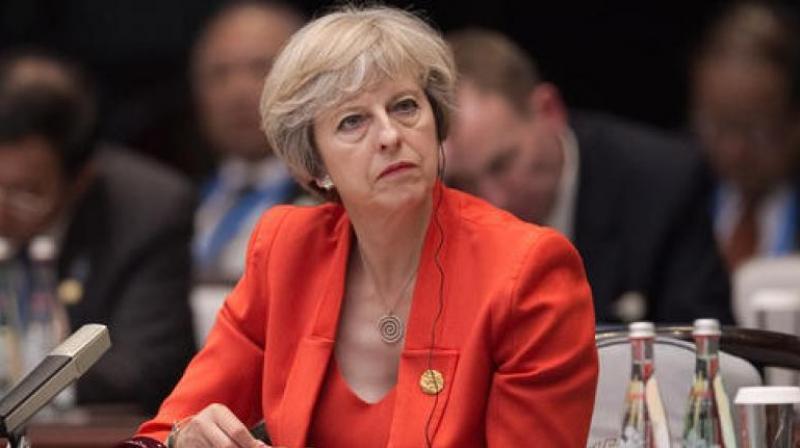UK government's Brexit plans in hands of Supreme Court

London: Prime Minister Theresa May wants to start Britain's divorce from the European Union, but 11 judges may stand in her way.
On Monday, May's government will ask Supreme Court justices to overturn a ruling that Parliament must hold a vote before Britain's exit negotiations can begin, a case that has raised a constitutional quandary and inflamed the country's heated debate about Brexit.
May plans to trigger two years of divorce talks before the end of March by invoking Article 50 of the EU's key treaty, using centuries-old government powers known as royal prerogative. Those powers - traditionally held by the monarch but now used by politicians - allow the government to join or leave international treaties without consulting lawmakers.
Financial entrepreneur Gina Miller and hairdresser Deir Dos Santos went to court to argue that leaving the EU will remove some of their rights, including free movement within the 28-nation bloc, and that shouldn't be done without Parliament's approval.
Last month, three High Court judges agreed. But the government says they have misinterpreted the law.
Government lawyers led by Attorney General Jeremy Wright will argue this week that the British people have spoken by voting in a June 23 referendum to leave the EU. They say a parliamentary vote would mean getting lawmakers "to answer precisely the same question which was put by Parliament to the electorate and has been answered in the referendum."
Though the courtroom drama will unfold in cool legal language, it has set public passions simmering.
November's ruling infuriated pro-Brexit campaigners, who saw the lawsuit as an attempt to block or delay Britain's EU exit. The anti-EU Daily Mail newspaper labelled the justices "enemies of the people." Miller says she has received abuse and death threats.
She arrived at court Monday with her lawyers, greeted by cheers from pro-EU campaigners dressed as judges atop an open-topped double-decker bus. A banner on the side read "In democracy, Leave hypocrisy."
"Nigel, where are you?" they sang mockingly, in reference to former UK Independence Party leader Nigel Farage, a prominent voice in the leave campaign.
He had promised to lead a march on the Supreme Court to demand judges respect the will of the majority. It was canceled last week after organizers said there was a risk it could be hijacked by far-right extremists.
Two anti-EU protesters held placards, one calling the case an "establishment stitch-up."
Many legal experts say the government will likely lose its appeal and be forced to give Parliament a vote.
"The arguments this time round are pretty much the same as in the last case - and I suspect the outcome will be the same," said Nick Barber, associate professor of constitutional law at Oxford University.
In a reflection of the constitutional importance of the case, all 11 Supreme Court judges will hear the appeal, the first time the full court has sat since it was founded in 2009. Arguments are scheduled to last four days, with a ruling likely in January.
Brexit Secretary David Davis has insisted that "whatever the outcome of the Supreme Court appeal we intend to stick to the existing timetable" for triggering talks.
Complicating the picture are new participants including politicians in Northern Ireland, who also want a say, and the Scottish government, which argues the Edinburgh-based Scottish Parliament should get a vote, too. Scottish voters strongly backed staying in.
The Supreme Court, facing the highest-profile case in its seven years of existence, noted on its website that the justices "are aware of the public interest in this case and the strong feelings associated with the wider political questions of the U.K.'s departure from the EU." But, it stressed, this case isn't about those wider issues.
"The Justices' duty is to consider the legal questions impartially, and decide the case according to the law," it said.

